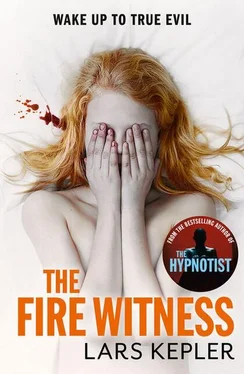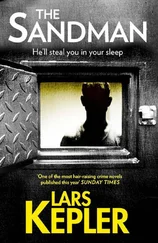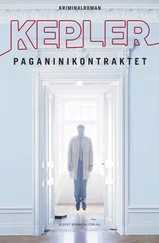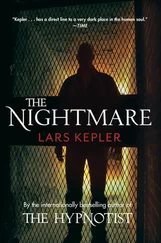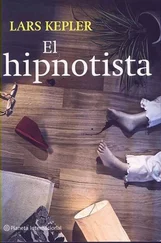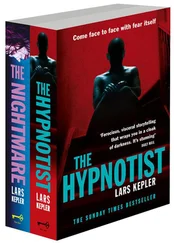“I once had a friend named Samuel Mendel,” he says, and then he falls silent.
Joona leaves the police station and as he’s done many times before walks up the steep path and over to the ancient Jewish burial ground. With practiced hands, he loosens the bar inside the gate, opens it, and walks inside.
There’s a relatively new family grave among the older stones: Samuel Mendel; his wife, Rebecka; and sons, Joshua and Reuben.
Joona places a small pebble on the top of the gravestone and stands there with his eyes closed for a moment. He inhales the smell of damp earth and listens to the breeze soughing in the treetops.
Samuel Mendel was a direct descendant of Koppel Mendel, who opposed Aaron Isaac, the founder of Sweden’s Jewish community, and bought this land for use as a cemetery in 1787. Although the cemetery has not been actively used since 1857, the descendants of Koppel Mendel are still buried there.
Detective Inspector Samuel Mendel and Joona were partners at the National Police, and they became very good friends.
Samuel Mendel was forty-six years old when he died. Joona knows that he is alone in his grave, although the gravestone says something else.
Joona and Samuel’s first case together was also their last.
One hour later, Joona is back in the appeals office of the Public Prosecutor for Police Cases. Mikael Båge, the head of the internal investigation, is there, along with Helene Fiorine, the department secretary, and the prosecutor, Sven Wiklund.
“I will now be deciding whether to start prosecuting your case,” Wiklund says. He runs his hands over a pile of paperwork and adds, “In these documents, there is nothing favorable.”
His chair creaks as he leans back and meets Joona’s eyes. The only sound in the room is the scratch of Helene Fiorine’s pen and her shallow breathing. The yellow light from outside plays over the polished furniture and the glass doors protecting the many leather-bound volumes of law, police regulations, and the writings and binding judgments of the Swedish Supreme Court.
“As I see this,” Wiklund continues drily, “the only way you can avoid prosecution is by giving me a really good explanation.”
“I bet Joona has an ace up his sleeve,” whispers Mikael Båge.
The contrail of an airplane dissipates in the light sky. The chairs creak. Helene Fiorine swallows and puts down her pen.
“Just tell us what happened,” she says. “Perhaps you had a very good reason for warning them of Säpo’s intended action.”
“Yes, I did,” Joona says.
“We know that you’re a good police officer.” Mikael Båge smiles, embarrassed.
“I, on the other hand, must go by the letter of the law,” Wiklund says. “My job is to break people to pieces when they break the rules. Don’t make me break you here and now.”
It’s as close to a plea as Helene Fiorine has ever heard her boss make.
“Your entire future is up in the air, Joona,” Mikael whispers.
“You understand that the decision was entirely my own,” Joona says. “I do have an answer for you, which perhaps...”
Joona’s cell phone rings. He gives it an automatic glance, and his eyes darken.
“Please excuse me,” he says. “I must take this call.”
The three others look at him as Joona listens to the voice on the other end.
“Yes... yes, I know,” he says. “I’ll get there as soon as I can.”
Joona ends the call and looks at Wiklund as if he’s forgotten why he’s here.
“I have to go,” he says, and leaves the room without saying another word.
One hour and twenty minutes later, the scheduled flight from Stockholm lands at Sveg Airport in Härjedalen. Joona takes a taxi to Blåvingen, the assisted-living home where Maja Stefansson lives. He’s been here before, when he traced Rosa Bergman, the woman who had followed him from Adolf Fredrik Church and asked him why he was pretending his daughter was dead.
Rosa Bergman had changed her name to Maja Stefansson. She’d used her middle name and her maiden name instead of the name she’d had most of her adult life.
Joona gets out of the taxi and heads straight to Maja’s ward. The nurse he’d met the last time he was here waves from behind the reception desk. The light from the window makes her hair shine like copper.
“That was fast,” she says cheerfully. “I was thinking of you and we have your card here behind the desk so I called—”
“Can I speak with her?” Joona says.
The woman is surprised by his serious tone. She runs her hands over her light blue skirt.
“We have a new doctor. She’s young. I think she comes from Algeria. Anyway, she changed Maja’s medicine and, well, I’ve heard people tell me about cases like this, but I haven’t seen it before... Maja woke up this morning and told us quite clearly that she needed to talk to you.”
“Where is she?”
The nurse leads Joona to a narrow room with closed curtains, and then she leaves him alone with the elderly woman. Over a tiny desk, there’s a photograph of a young woman sitting next to her son. The mother is holding the boy’s shoulders protectively.
A few pieces of her furniture have been moved here. A dark desk, a vanity, and two golden pedestals. Rosa Bergman is sitting on a daybed, dressed neatly in a blouse and skirt, with a knitted afghan around her shoulders. Her face is swollen and covered in wrinkles, but Joona can see that she’s fully aware and calm.
“My name is Joona Linna,” he says. “You have something to tell me.”
The woman nods and gets up with difficulty. She opens a drawer in her nightstand and takes out a Gideon Bible. She holds the book by its covers over the bed. A small piece of folded paper falls out.
“Joona Linna,” she says as she picks up the piece of paper. “So you are Joona Linna.”
He says nothing, but feels the burning intensity of a migraine coming on. It’s like a glowing needle pressed through his temples.
“How can you pretend your daughter is dead?” Rosa Bergman says. She glances at the photograph on the wall. “If my boy was still alive... If you knew what it was like to see your child die... Nothing would ever make me abandon him.”
“I did not abandon my family,” Joona says. “I saved their lives.”
“When Summa came to me, she said nothing about you, but she was broken,” Rosa continues. “Your daughter had it much worse. She stopped talking and didn’t start again for two years.”
Joona feels a shiver go down his spine.
“How did you contact them?” he asks. “You were not supposed to be in contact with them.”
“I could not let them disappear completely,” she said. “I felt extremely sorry for them.”
Joona knows that Summa would not have mentioned his name unless something had gone terribly wrong. There was not supposed to be a single thread connecting them — not one. That was the only chance they had of surviving.
He has to lean on the desk. He swallows hard and looks at the old woman.
“How are they doing?” he asks.
“It’s very serious, Joona Linna,” Rosa says. “I used to go see Lumi once a year. But these days... somehow I’ve gotten very forgetful and confused.”
“What’s happened?”
“Your wife has cancer,” Rosa says. “She was going to have surgery, but might not survive. She wanted you to know that Lumi was going to be handed to the authorities if she—”
“When did you hear this?” Joona’s jaw is clenched. His lips have turned white. “When did she call you?”
“I’m afraid it might be too late,” Rosa whispers. “I’ve been so forgetful lately.”
She hands him the wrinkled sheet of paper. It has an address on it. She lowers her head and stares at her arthritic hands.
Читать дальше
